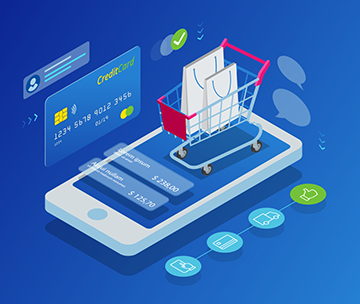Once you’ve launched your new e-commerce site, it’s time to start thinking about marketing. This may seem like an easy task, but there are many things to consider, including: what type of marketing you want to do, how and where you will reach your target audience, and which metrics will tell you whether your campaigns are working or not.
7 Features Your Next E-Commerce Marketing Platform Should Have
1) Easy To Use
A marketing platform should allow you to easily set up campaigns, create content and optimize your site for maximum performance. It should be intuitive and responsive—you shouldn’t have to spend hours learning how to use it. You also want a platform that is easy to integrate with other tools in your marketing stack.
Read Also:- Digital customer experience: Everything to know in 2022
If you’re using a tool like MailChimp or Salesforce, make sure that it integrates seamlessly with those platforms as well as with your e-commerce store.
2) User Friendly
User experience should be your top priority when selecting an ecommerce marketing platform. Make sure it’s both user friendly and highly functional; any software you install on your site should enhance its design, not detract from it.
If you have no web development skills of your own, check for applications that can integrate with already existing sites—many offer a seamless experience and don’t require extensive coding to set up or maintain.
3) Inexpensive
A good Ecommerce Marketing Services platform doesn’t have to cost a small fortune. Look for a cloud solution that is cost effective and flexible. Make sure you are not paying extra money just because you want more features.
It is possible to find a platform that has everything you need and at an affordable price. This way, you can focus on your business instead of how much it costs to run it.
Read Also:- How to Choose Competitors for your ASO Strategy
4) Visual
A picture says a thousand words, and you’re no exception to that rule. If you’re serious about e-commerce marketing, your platform should have visual capabilities so you can create powerful images, ads and infographics to help sell your products.
Without visuals, users can’t get an accurate sense of what they will experience when they buy your product. You should be able to customize everything from font size and color to layout.
5) Mobile Optimized
Not everyone is surfing your site from a desktop computer, so make sure your platform has a mobile version as well. With most people using their phones and tablets to shop online, you can’t afford to miss out on e-commerce traffic that’s passing through these smaller screens.
If you have an existing website, consider upgrading it to include a responsive design or building one from scratch. Otherwise, look for an e-commerce marketing platform that comes with a mobile app. If you plan on accepting payments via phone or tablet, make sure your provider offers secure payment processing for both iOS and Android devices.
Conclusion
A good ecommerce marketing platform is one that you can use to reach customers wherever they are: on desktop, tablet, or mobile. Today’s shoppers move seamlessly between screens as they research and shop for items. Be sure to look for a platform that offers responsive website templates so you don’t have to worry about redoing your online store when shoppers transition from their desktop or laptop computer to their smartphone.
You should also make sure your chosen platform offers an intelligent personalization tool.














